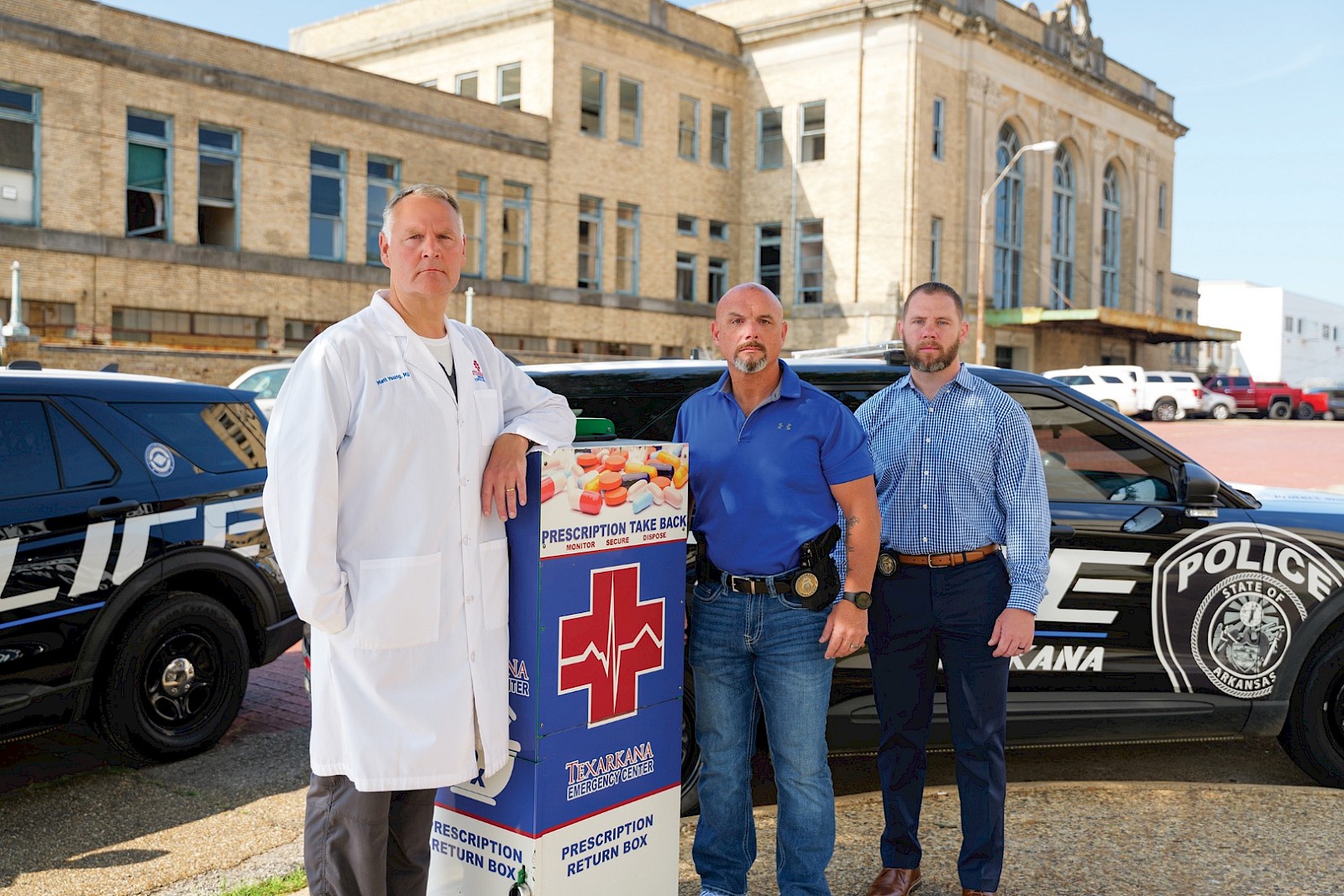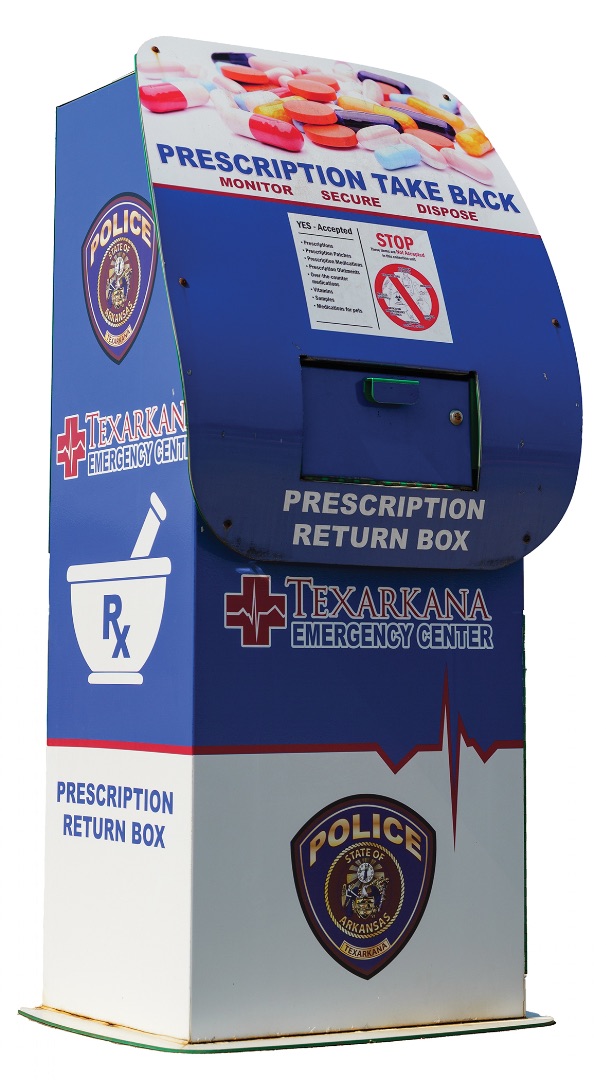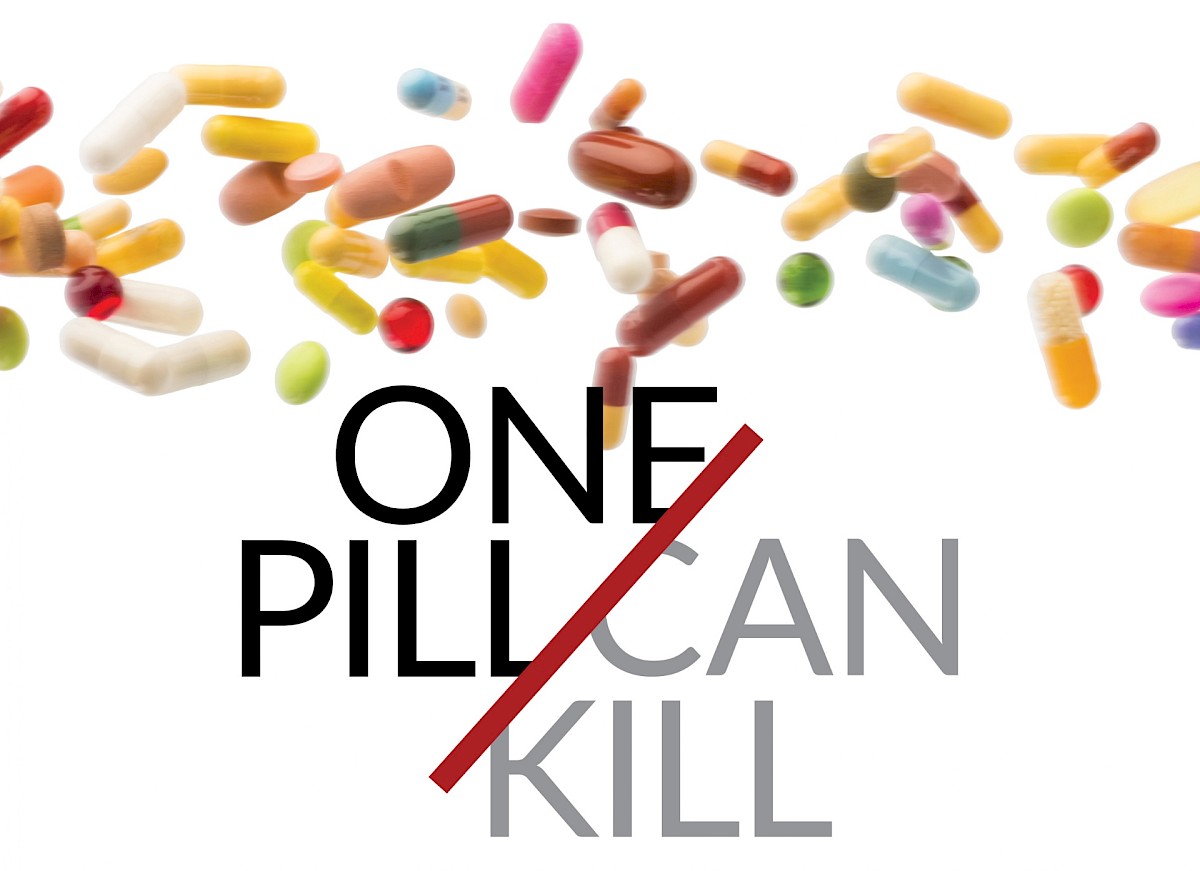One Pill Can Kill
For many of us, August signifies a time of new beginnings. There is an air of excitement as students, parents, and teachers prepare to head back to school. Everyone is eager to see class lists, homeroom teachers, and schedules. A new school year reminds us of the smell of a freshly opened box of crayons, the feel of a brand-new backpack, and the sound of school bells ringing. The school year brings about a time of goal setting and eagerness to be prepared and focused. Parents and guardians challenge their children to make the honor roll, have perfect attendance, and have exemplary conduct. Several local organizations distribute backpacks, school supplies, and even food items to meet students’ basic needs. Everyone seems committed to ensuring the students in our community are set up for success. However, with the ever-changing dynamics of society, we must do more. We must prepare our kids to face a danger that exists right here in our own backyards—the fentanyl crisis.
Precisely what is fentanyl, and why would anyone take it? Fentanyl is a synthetic opioid intended to be a painkiller during surgery in acute care settings. According to an article titled “What is Fentanyl and Why is it Behind the Deadly Surge in U.S. Drug Overdoses?” published by UMass Chan Medical School in May 2022, fentanyl entered the illicit drug scene in 1979, clustered in individual cities. Once distribution was expanded, overdose deaths went from 8,050 in 1999 to 33,091 in 2015. Fentanyl has gained popularity mainly due to its ease of production. It is not plant derived and does not require cultivation. It is 50 times stronger than heroin and 100 times stronger than morphine, gives the user a more significant high, and is activated quickly once in the user’s system. The inappropriate use of small amounts of fentanyl results in an intense high, making its distribution an attractive option for drug dealers. However, it can also cause respiratory failure leading to death and is currently the leading cause of opioid overdoses.
Last March, public officials held a joint press conference to discuss a rash of deaths in our area related to fentanyl. Many were stunned by the harsh reality of illicit drug use within our cities. Debbie Autrey, a licensed psychological examiner, and her husband Wren, a circuit judge, know first-hand the pain of losing a child to drugs. They lost their 18-year-old son to an accidental tramadol overdose less than a year after his high school graduation. Debbie never wanted Will’s life to be defined by his death. “It was not who he was. It was something that happened. Will was funny, smart, and loving. God gave his dad and me so many good memories to hold on to. I feel blessed to have been his mom for 18 years.” She adds, “It can happen to anyone. Will was raised in the church and went to good schools. We knew his teachers. We were hands on and very involved in his school activities. He was raised right. I wish I had known more when I was facing it. If you suspect your child is experimenting with drugs, get yourself all the education you can. The first time is always a choice. You never know if your brain is the one that will be hijacked. Everyone is different. It can happen so fast.” Anyone taking unprescribed oxycodone, hydrocodone, or Percocet is at risk of ingesting a lethal dose of fentanyl.
Representative Bruce Westerman brought this point home recently in the article “U.S. House Passes Fentanyl Measures Addressing National Crisis,” published by the Arkansas Democrat-Gazette. In the article, he explained, “You don’t have to go far to find someone whose family or community has been affected by fentanyl.” His counterpart, Representative French Hill, stated in the same article, “This is a part of their college and high school experience. The number of parents I know that have been devastated by this is just shocking.” Regarding fentanyl, Congressman Hill gets our attention with his sobering comment: “It’s not just a party drug situation; you’re literally rolling the dice with your life.”

photo by Matt Conrleius
Texarkana residents are fortunate to have local leaders who advocate for our children by diligently sharing the message “One Pill Can Kill.” Dr. Matt Young, Chief Medical Officer at Texarkana Emergency Center & Hospital, Corporal Les Munn, and Sergeant Kyle Caudle recently made headlines after sharing a “One Pill Can Kill” presentation with students at a local middle school. According to Dr. Young, the phrase stems from an incident involving Zach Didier, a high school senior from Rocklin, California, with no history of drug use. When his parents overheard paramedics considering fentanyl as his cause of death, they were shocked and confused. Their son was 17 years old, an Eagle Scout, a soccer player, and the star of his high school musical, as reported in the article “Poison Pill: How Fentanyl Killed a 17-Year-Old,” published by the Washington Post in November, 2022. After a thorough investigation, it was determined Zach bought two or three pills through Snapchat from a drug dealer, thinking it was Percocet. Percocet is traditionally used to treat moderate pain. Toxicology reports later revealed no Percocet in Zach’s system, only fentanyl. Social media sites have become a haven for the distribution of tainted pills.
Dr. Young reiterated that Zach’s story is becoming all too common. No one dismisses the plight of hard-core addicts, but this fentanyl crisis is different. It only takes one time using a laced, illicit or counterfeit drug to die. You cannot taste or smell fentanyl; it is nearly impossible to tell if drugs are laced with it. Six out of ten counterfeit pills contain fentanyl, and fentanyl-related deaths more than tripled between 2016 and 2021. It is the leading cause of death among those aged 18-45.
Dr. Young is widely known in our community for educating our youth about the dangers of vaping. He has recently shifted his focus to fentanyl and drug overdoses because “at this point, it’s triage.” Sharing the “One Pill Can Kill” mantra with local students has become a mission he takes very seriously. “I feel a responsibility to give back to a community that has given so much to me.”
Corporal Les Munn of the Texarkana Arkansas Police Department (TAPD) is equally passionate about educating the youth of Texarkana. “You can tell that overdoses are up by the amount of Narcan/Naloxone administered by Emergency Medical Technicians (EMTs), law enforcement officers, and emergency room professionals.” Narcan/Naloxone is a medication that quickly reverses an opioid overdose. Due to the growing use of fentanyl, its use is also on the rise. Munn is easily recognizable as a leader in our community and serves as the public information officer for TAPD. His message is stern about what guidance parents should offer when talking to their kids about drugs. “Kids must learn the world’s ways from their parents, not other kids. Get to know your kids and remind them daily of your morals and values. Society has gotten lazy about communicating with kids. It is the parent’s responsibility.” His advice is simple but could make all the difference.
Changes in moods or mannerisms, breaks in routines, and inappropriate social media and screen activity may be signals that something is off. If you discover or suspect a problem, “There’s no room for being mad or expressing blame or anger. Do not yell or judge, but have a real conversation,” Munn said. If your child or another loved one is using drugs, you must seek help. There are doctors and counselors who can help you take the right steps and get you on the right path.
Parents, when the back-to-school shopping is done, the lunches are packed, and the academic goals have been set, take a moment to talk to your children about the dangers of drug use. Educate yourselves and educate your kids. As a community, we owe it to ourselves and our children to learn more and participate in the conversation regarding opioid addiction and the fentanyl crisis.
For Help, Call...
National Drug Addiction Hotline—1-844-289-0879
Harbor House Inc.-Texarkana—870-331-0732
or visit...www.dea.gov/onepill

Prescription return boxes are available in three locations around town to properly dispose of unwanted, old, or expired prescription drugs.
Items that ARE ACCEPTED
Prescriptions, prescription patches, prescription medications, prescription ointments, over-the-counter
medications, vitamins, samples, and medications for pets.
items that are NOT ACCEPTED
No ointments, lotions, or liquids, needles, aerosol cans, inhalers, hydrogen peroxide, thermometers, medication from businesses or clinics. If you have any questions call and make sure your item is accepted. This service is available 24 hours a day, seven days a week. If you have any questions about this program please call 903-798-3130.
Prescription Drug Return Box Locations
Bi-State Justice Center
100 Front Street
Texarkana, USA 75501
(Behind Bi-State Justice Center)
Miller County Sheriff’s Office
2300 East Street
Texarkana, Arkansas 71854
Texarkana Emergency Center
4646 Cowhorn Creek Road
Texarkana, Texas 75503


